Almost all diets work for losing weight. So says Dr. Jason Fung. In the world of nutrition advice, that is a shocking statement.
Because usually we hear nutrition experts arguing that one approach is “correct.” And if their way is right, the rest must be wrong and ineffective. We hear arguments like:
- Low-carb vs low-fat.
- Vegan vs high-protein.
- Cardio vs weight lifting.
But according to Dr. Fung, scientific studies prove most diets DO help us lose weight. The problem is that 6-12 months later, most people gain all that weight back. Why? Is it because of a lack of self-discipline or willpower? Maybe not…
The Obesity Code says people remain overweight not because of a lack of self control, but due to an imbalance in their hormones, specifically insulin.
Personally, I found many of the ideas in The Obesity Code absolutely fascinating. A lot of it goes against commonly accepted weight loss advice. For example, he says counting calories and physical exercise are relatively ineffective at helping us lose weight!
Growing up, I always heard that people were mainly overweight because they didn’t run around enough. And don’t even get me started on the food pyramid they taught us in school, telling each child that it was healthy to eat tons of white bread and pasta every day!
Who is Dr. Jason Fung?
Dr. Jason Fung, MD is a nephrologist (that is, a doctor specializing in kidney diseases) who lives and practices in Toronto, Canada. As a young doctor, he noticed the most common cause of chronic kidney disease was diabetes, and the most common cause of diabetes was obesity.
So over time, Dr. Fung decided to focus more on treating the root cause of his patient’s health problems—their obesity—rather than just the final symptoms. At first, he tried giving patients the usual dieting advice, but that simply didn’t work. Eventually he found a different approach that did work, combining intermittent fasting and a diet of low carbs, healthy fats.
🥑 1. Low Fat Was Wrong: Warnings against saturated fat accidentally accelerated the obesity epidemic
From the 1970’s until very recently, eating healthy was about eating “low fat.”
This was largely because of Dr. Ancel Keys, who conducted the Seven Countries Study, where he found a correlation between eating more saturated fat and heart disease. That led to his diet-heart hypothesis.
The diet-heart hypothesis said that eating more saturated fat causes high cholesterol, which causes heart disease. Eating too much butter would supposedly cause our arteries to get “clogged up” with cholesterol like a dirty pipe.
Dr. Ancel Keys was not against all fats. He was actually a promoter of the Mediterranean Diet, which includes healthy unsaturated fats found in olive oil, nuts, and fish. (This diet continues to be highly recommended today by top authorities for a healthy heart, brain, and long life.)
However, the general public took home the simple message that “fat = bad,” forgetting the details. They also began believing that low fat was good for losing weight.
Because people were eating less calories from fat, they wound up eating more refined carbohydrates. Adding fuel to the fire, the US government published the food pyramid in 1977, which said the foundation of a healthy diet was 6-11 daily servings of refined carbs like breads, cereals, and pasta. Over the next 25 years, people listened and ate 10% less calories from fat, but during the same time obesity rates shot up from 15% to 35%.
What went wrong with the low-fat strategy?
- No real scientific evidence that eating saturated fat causes more heart disease. Dr. Ancel Keys found a correlation, but that isn’t proof. His data also could have shown a strong correlation between heart disease and eating more sugar or animal protein, but he chose not to emphasize those. More recent studies suggest the source of the saturated fat seems to be important—for example, whole-fat dairy may reduce risk but processed meats could increase risk.
- No reduction in heart disease from low-fat, according to more recent studies. In fact, replacing saturated fats with refined carbohydrates seems to increase risk. Many doctors now believe heart disease is caused not by “clogged arteries,” but by inflammation, and that may be fueled by a diet high in refined carbohydrates and sugar.
- Unintended consequences. Big food companied jumped on the trend, marketing their highly processed foods as “low fat.” But removing the saturated fat meant adding other ingredients to compensate, like more sugar, highly processed oils, or deadly trans fats.
- More weight loss on low-carb diets than low-fat ones, also according to multiple recent studies. This was a confusing result to many people who’d been told for years that if you want to lose fat, you should eat low fat. Along the way, there were some prominent voices who spoke against low fat—including Dr. Atkins, Dr. Bernstein, and journalist Gary Taubes—but the authorities quickly labelled them as “fad diets,” “unproven,” or even “dangerous.”
(…Even though the official recommendation of “low fat” had little scientific proof and was basically unheard of before the 70’s! Often health recommendations can stick around for a long time because people are reluctant to change past beliefs, even health authorities who are supposed to be scientific. Psychologists may call this “cognitive dissonance.” As an example, the recommendation to cut down on dietary cholesterol (like in eggs) was only just retracted in 2015, when US authorities finally admitted there was no scientific proof dietary cholesterol increased blood cholesterol. But it took decades!)
If you’re interested in diets high in healthy fat, then you may have also heard of Dr. David Perlmutter, a neurologist who has written 6 New York Times bestselling books. In his most popular book, Grain Brain, he argues that brain disease like Alzheimer’s is caused by chronic inflammation. And that inflammation is stimulated by a diet high in refined carbs, sugars, and grains.
To protect your brain, Dr. Perlmutter recommends a diet similar to the Mediterranean Diet, with plenty of healthy unsaturated fats from olive oil, avocados, nuts, and fish. But he goes a big step further, arguing that we should also stop eating whole grains. That is a position most health organizations disagree with today, but could he be right?
In the 1970’s, Dr. Ancel Keys found a correlation between eating saturated fat and heart disease. Soon, the public largely believed that eating fat would “clog their arteries” and make them obese. Large food companies began marketing “low fat” food that was instead filled with sugar and refined carbs, accelerating the obesity epidemic. Today, Dr. Fung says there’s good scientific evidence saturated fat does not increase risk of heart disease or obesity.
🥕 2. Low Calorie is Mistaken: Telling people to eat less doesn’t work, because it misses the ultimate cause of obesity
The official advice for losing weight can be summed up as “eat less, move more.” Eat fewer calories, do more physical exercise. It sounds reasonable, so why does it seem to usually fail? The officials don’t have much answer for that, except maybe that people are too weak and lazy to follow the advice.
Cutting calories doesn’t work, according to Dr. Fung, because it’s a flawed strategy and based on nutrition myths. Myths such as:
- Fat = Calories In – Calories Out. This is a myth because when you reduce calories in, then calories out is also reduced. Many studies have backed this. Most caloric expenditure happens during ordinary living, as our body generates heat, digests food, creates cells, etc. That’s called Basal Metabolic Rate. When you significantly cut calories, then our body believes you are starving and need to conserve energy. So it reduces those essential processes, which is why people on a diet feel cold and tired all the time.
- A Calorie Is A Calorie. Many believe they weight loss is all about eating fewer calories, and it doesn’t matter what kind of food you consume. This is a myth because different kinds of foods are differently metabolized (processed in the body). For example, a calorie of Coca Cola has different effects in the body than a calorie of avocado. The Coca Cola contains sugar that stimulates an increase in blood sugar, then insulin. All these processes can have a large impact for weight loss.
- Eating Less Is About Willpower. This is a myth because it’s actually hormones that control our level of hunger, fat storage, etc. For instance, obese people have higher levels of a hormone called leptin, produced in the fat cells. Leptin communicates with a part of our brain called the hypothalamus, which then controls our appetite. (But leptin is only a secondary mechanism in obesity, we’ll get to the primary cause in just a minute…)
Basically, Dr. Fung says calories are not the controlling factor in losing weight, they are only a secondary factor. It is hormonal processes that ultimately control the amount of calories we intake and expend.
If that sounds unlikely, consider that in the 1960’s, Dr. Ethan Sims conducted several experiments trying to make people gain weight through overeating. He found it was surprisingly difficult for many of his subjects to gain weight, even eating 4,000 calories per day, and they would lose the weight quickly after the study. When the subjects did gain weight, it was also far less than predicted by the calorie model.
In 1984, two other researchers named Keesey and Corbett found that every body has “weight set-point” that control fat storage like a thermostat. If we are thinner than our inner “weight set-point,” then our body turns on processes for gaining weight—by increasing hunger, reducing metabolic rate, etc. Perhaps that is why losing weight by reducing calories is possible, but keeping it off seems so difficult. We first need to change our “weight set-point.”
The commonly accepted idea that losing weight is about cutting calories is based on several myths. In fact, reducing calories in also reduces calories out aka Basal Metabolic Rate, different calories are metabolized/processed differently in the body, and it is hormones—not willpower—that controls our calorie intake, expenditure, etc. Every body has a “weight set-point” that works like a thermostat, trying to keep us at a certain weight.
📈 3. Insulin Causes Obesity: Persistently high insulin levels cause insulin resistance, causing obesity
So here is the core argument in The Obesity Code: a high body “weight set-point” is caused by insulin, specifically a condition called insulin resistance.
Here are the key points:
- What is insulin? When you eat food, the carbohydrates in that food are broken down into glucose, a type of sugar that circulates in your blood. Then your pancreas releases a hormone called insulin, which delivers a message to your cells, telling them to use the blood glucose for energy. Insulin is like a key opening a door inside the cell, allowing the glucose to enter.
- Giving people insulin makes them gain weight. This has been proven in many studies involving diabetes patients. (Type 1 diabetes is a disease of insulin deficiency, so the most common treatment is giving insulin. Type 2 diabetes is far more common and is a disease of insulin resistance.)
- Insulin resistance is the reason people stay obese. This is when the body can still produce enough insulin, but for some reason the cells have trouble accepting it. As a result, more glucose stays in the blood and can have seriously negative effects on long-term health. Dr. Fung argues insulin resistance is the cause of a higher “weight set-point” which results in overeating, slowed metabolism, and more fat storage by the liver. (The liver turns glucose into glycogen then into body fat in a process called de novo lipogenesis, basically to store energy long-term.)
What causes insulin resistance?
- High levels of insulin. This is determined by what we eat. All foods are composed of 3 macronutrients: Carbohydrates, proteins and fats. Carbs are broken down into glucose, stimulating a strong insulin response. Proteins are not broken down into glucose, but they also stimulate insulin. Fats increase insulin the least.
- Persistent exposure to insulin. Insulin levels remain elevated when we eat all the time. That includes snacking between meals and eating from early morning to late night. (The key to reducing insulin resistance is intermittent fasting, which translates to skipping a couple meals some days. We’ll talk more about this later.)
In The Obesity Code, there is a secondary hormone that causes obesity called cortisol, which is released when we’re stressed. We don’t have time for the details, but this means reducing stress is very important for weight loss. Stress reduction practices are active, like doing yoga, meditation, exercise, massage, etc. Not passively sitting or consuming content.
Getting enough sleep is also essential. In the book Why We Sleep, the Stanford professor Matthew Walker says a lack of sleep increases levels of a hormone named ghrelin that makes us feel hungry, while lowering levels of leptin that makes us feel full. A study by the University of Chicago found that people ate 300 more calories every day when their sleep was restricted to 4-5 hours per night.
So make sure you’re getting at least 7 hours of sleep each night. His number one tip is to keep your bedtime constant—go to sleep and wake up at the same time each day. Also, make sure before bed that you avoid caffeine for several hours and blue light from electronic screens for two hours.
The cause of obesity and a high body “weight set-point” is insulin resistance. Insulin is a hormone that helps us manage blood glucose, that comes from breaking down foods, especially carbohydrates. Insulin resistance is caused by high and persistent levels of insulin, due to eating certain types of carbs and eating all the time.
🍳 4. Eat Low Carb, Healthy Fats: To control insulin levels and reduce fat, begin with eating natural and unprocessed fat
So how do we lower our insulin levels? By eating more of the kinds of foods that increase insulin the least. Those tend to be high in fat.
By now you’ve probably heard of keto, or the ketogenic diet, which is heavy in fats. Some people take it to the extreme, believing it’s healthy to eat bacon all day long. Dr. Fung doesn’t go that far, but he says eating more of our calories from fat will make us healthier.
The key is to avoid the sausage, but eat more natural fats found in unprocessed whole foods or minimally processed foods. Such as: olive oil, nuts, seeds, fish, avocado, full-fat dairy, coconut oil, and some beef/pig fat.
Be aware there are multiple kinds of fat on the list:
- Monounsaturated or polyunsaturated fat are found in some of the foods, like the olive oil, nuts and fish. These fats are part of the famously healthy “Mediterranean Diet” and most of the medical world agrees they are very healthy. That includes Ancel Keys, the doctor who probably began the “low fat” craze decades ago.
- Saturated fats are found in some other foods, like the animal fats, dairy, and coconut oil. These remain controversial in the medical world, but they’re much less vilified than before. Near the beginning of this summary, we explained Dr. Fung’s argument for why there was never any real scientific proof saturated fats cause heart disease or obesity. So he recommends we eat them.
What about protein? Dr. Fung recommends only 20-30% of our calories come from protein. While protein doesn’t have the same effect on blood sugar as carbs, it does increase insulin levels. How? Through other channels such as the incretin effect (where stomach hormones stimulate the pancreas to release insulin) and the cephalic phase (where food taste alone stimulates insulin in anticipation of digesting food). Eating meat does appear associated to weight gain, but dairy does not.
In The Obesity Code, there are some fascinating sections of the book describing the biological mechanisms of how different foods are processed in our bodies. The scientific explanations add a lot of credibility to Dr. Fung’s nutrition recommendations. Unfortunately, in this summary we can’t go into those details because the amount of information would simply be overwhelming! But we highly recommend you pick up the full book if you are finding this interesting. Dr. Fung also many popular Youtube videos you can watch here.
Fats increase insulin levels the least during and after a meal, as compared to carbs and proteins. To lose weight, we can eat more unprocessed or minimally processed foods that are high in fat, like olive oil, nuts, seeds, fish, avocado, full-fat dairy, etc.
🥦 5. Increase Fiber: Even foods high in carbohydrates can be healthy, if they are whole and unprocessed
Not all foods high in carbohydrates are created equal. Some are much better for you than others, meaning they don’t increase blood glucose and insulin as much. The better carbs tend to be high in fiber.
What is fiber? It’s a part of food that passes through our body undigested, but works to slow down how quickly our body digests food.
In general, whole unprocessed foods (like veggies, fruits, and whole grains) are much higher in fiber than processed foods (like juice, cereal, and bread). When food is processed, the fiber is removed, leaving carbs like sugars.
Why? To improve taste and give a quick hit of sweetness. That’s one reason we can drink a lot of orange juice, but we can’t eat that many whole oranges. This general fact is supported by the glycemic index, a useful tool created by scientists that rates how strongly individual foods increase blood sugar.
When we eat carbs, we should make them whole foods that are unprocessed or minimally processed, and the more fiber the better. That generally means buying more food in the produce section, not in boxes that have a cartoon tiger on the front. In some places in the world (like the islands of Okinawa and Kitava), the people eat a high-carb diet and remain very healthy, but their traditional foods are unprocessed like sweet potatoes.
Vinegar also seems to help, studies show when carbs are eaten with vinegar, there is a lower glucose+insulin response. Some common ways include sushi rice, fries with vinegar, salad dressing, etc.
Dr. Michael Greger offers a different point of view on nutrition, emphasizing an almost-vegan way of eating that is high in whole plant foods. In his book How Not to Die, he makes the case that our risk of most diseases is increased by eating more animal foods and highly processed foods.
Dr. Greger has a “Daily Dozen” Checklist of foods he recommends we eat daily, including beans, greens, berries, fruits, whole grains, nuts, and seeds (especially flaxseeds). What do those foods have in common? Lots of fiber!
Some carbohydrate foods are much healthier than others, the good ones tend to be unprocessed whole plant foods that are high in fiber like broccoli, spinach, blueberries, whole grains, etc. In processed foods, fiber tends to be removed for flavour, causing a stronger insulin response.
🥤 6. Avoid Added Sugars: Processed foods tend to contain harmful added sugars or artificial sweeteners
This lesson is easy: Avoid sugars. By now, we all know sugar is bad for us, right?
Here are just a few key points I learned from The Obesity Code:
- Added sugars are often hidden in processed foods, under alternative names like sucrose, maltose, fructose, dextrose, etc. In the recent past, people consumed a lot of sugar through drinks like Coca Cola, but this trend appears to be reversing. Better snacks include fruits, dark chocolate, nuts, or cheese.
- Fructose is an especially harmful sugar because it is only metabolized by our liver, so eating too much fructose causes faster insulin resistance in our liver. For a while, fructose was believed to be a healthier sugar because it didn’t raise blood sugar as much. Fructose can be found in both table sugar and high fructose corn syrup, often used to sweeten processed foods like soda.
- Artificial sweeteners should also be avoided. These are assumed to be healthier because they don’t have the same calories as sugar. 42% of Coca Cola sales are now diet drinks. However, studies associate artificial sweetener consumption with increased risk of obesity and insulin resistance. The exact mechanisms are not well understood, perhaps sweet taste itself stimulates insulin.
I agree with one Dr. Pepino who told the New York Times, “Sweetness should be consumed in moderation, regardless of whether it has calories or not.” Dr. Fung recommends allowing ourselves occasional indulgence, especially at special occasions like birthdays and weddings.
In his book Why We Get Fat, the journalist Gary Taubes echoed a similar message, “Stay away from carbohydrate-rich foods, and the sweeter the food or the easier it is to consume and digest—liquid carbohydrates like beer, fruit juices, and sodas are probably the worst—the more likely it is to make you fat and the more you should avoid it.”
Read more in Why We Get Fat by Gary Taubes
We should eat little sugar, saving it for special occasions. Added sugars are hidden in processed foods under various names. Artificial sweeteners have concerning effects in the body and should be avoided. Better to eat fruits, dark chocolate, nuts, cheese, etc.
⏳ 7. Intermittent Fasting: The key to reducing insulin resistance is increased time between eating
Remember how insulin resistance is caused by both high AND persistent levels of insulin? Now we’ll talk about the second part, how to make sure our insulin levels are not persistently high. Since insulin goes up when we eat food, the key is to stretch out our time between eating.
Some simplified tips from Dr. Fung:
- Avoid snacks. Eat only 3 meals per day, like most people did in the past. This allows our insulin level to decrease between meals. Most snacks are highly processed foods anyway.
- Skipping breakfast is okay. It’s a myth that we always need to eat after waking up, especially if we’re not hungry. A breakfast doesn’t cause us to eat more later and it’s not required to have energy in the morning.
- Regularly fast (don’t eat). In Dr. Fung’s clinic, patients usually fast 2-3 times per week for 24-36 hours. For example, a 24 hour fast could last from 6 PM one day to 6 PM the next day, so the patient would simply skip a couple meals.
Same important fasting tips include: Drink water, tea, coffee, or broth. Salt and water are important to remain hydrated and avoid symptoms like headaches. Diabetics need to be very careful, keeping their blood sugar under medical supervision.
Many people feel resistant to fasting because it’s become uncommon in modern society. But fasting has been important around the world to many cultures, traditions, and religions. Today, hundreds of millions of Muslims fast during Ramadan from sunrise to sunset, and so do plenty of Buddhists and Christians.
Fasting is also part of our animal nature, says Dr. Fung. Our body is designed to function well without food for periods of time, because that is a fact of life in nature. While fasting, the body switches from using our short-term food energy to burning long-term stored energy, also known as fat. That means fasting doesn’t lower our energy expenditure in the same tiring way as chronic calorie restriction.
In my personal experiences with fasting, I’ve been surprised at how little hunger or tiredness that I felt. Sometimes there would be a short wave of tiredness during noon, when I’d need to take a short nap. But otherwise I felt more sharp, focused and clearheaded. Benjamin Franklin wrote about eating a light diet for similar mental benefits.
There’s a great scientific book on how to live longer called Lifespan, written by David Sinclair, a professor of genetics at Harvard Medical School. He also raves about the benefits of fasting for health and longevity. He also says we can live longer through practices like physical exercise and exposure to cold temperatures.
What do fasting, exercise, and cold exposure have in common? They expose our body to short-term stress. Not enough stress to damage us, but enough to activate certain biological pathways that actually make us healthier.
The key is intermittent exposure. If we didn’t eat for months at a time, then eventually our bodies would break down, like what happens to war prisoners. But if we occasionally fast for a limited time, then our body has time for restoration and healing.
Modern society teaches us to eat all the time. Dr. Fung says to break insulin resistance, we need to avoid persistently high insulin levels. That means increasing time between food by eliminating snacks, skipping breakfast if not hungry, and fasting 1-2 times per week for 24-36 hours.
- Write down 3 foods you could eat low on the glycemic index. Remember, these are generally healthier foods because they do not increase blood glucose and insulin as much. Some examples include: chickpeas, mushrooms, onions, cashews, etc. Here’s a useful list.
- Check the ingredient label of one food at home. We all probably have food at home that is processed and packaged. One of the best habits we can built is checking the nutrition label before we buy food. If you don’t understand the name of an ingredient (like oligosaccharides), then Google it. Especially watch out for added sugar in various disguises.
- Avoid buying unhealthy food in the store. This nutrition tip is probably the most simple, yet useful one I ever learned. If we don’t have junk food lying around the home, then we won’t eat it. No willpower required.

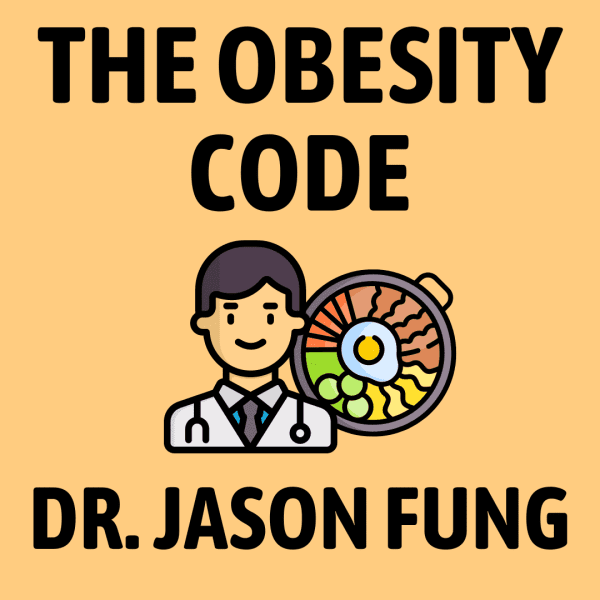
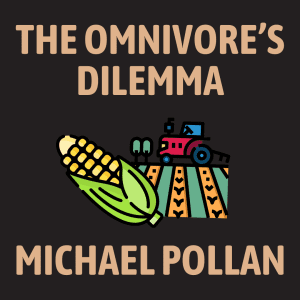
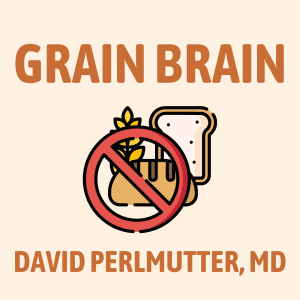
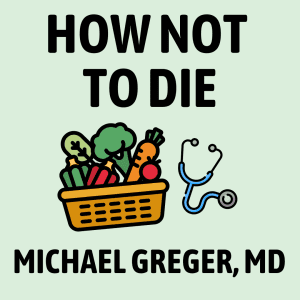
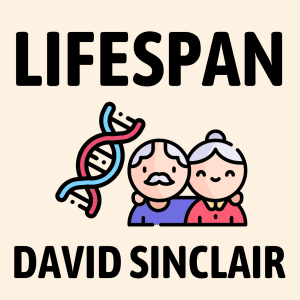


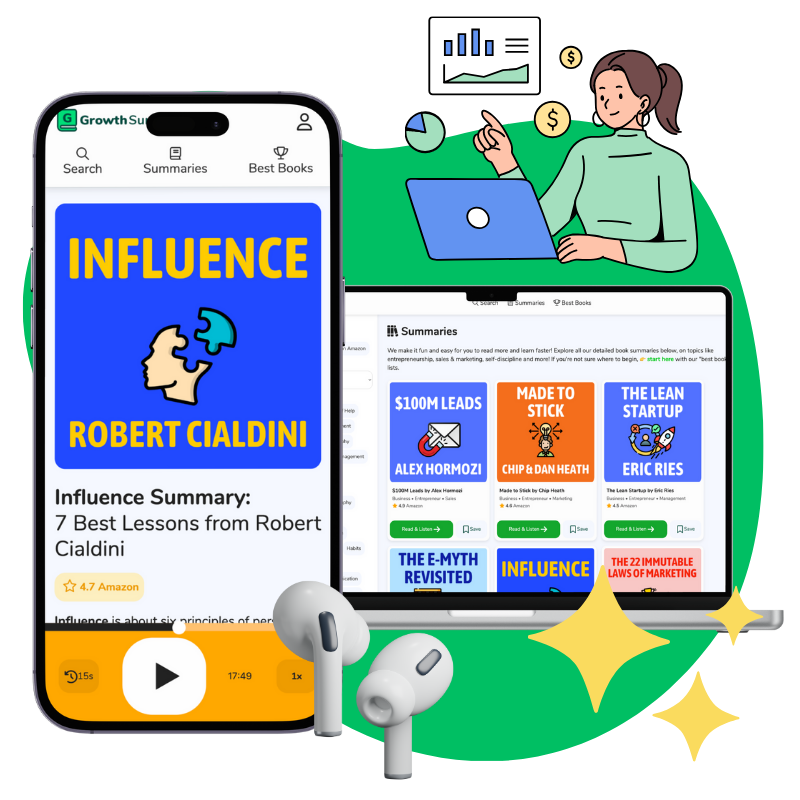
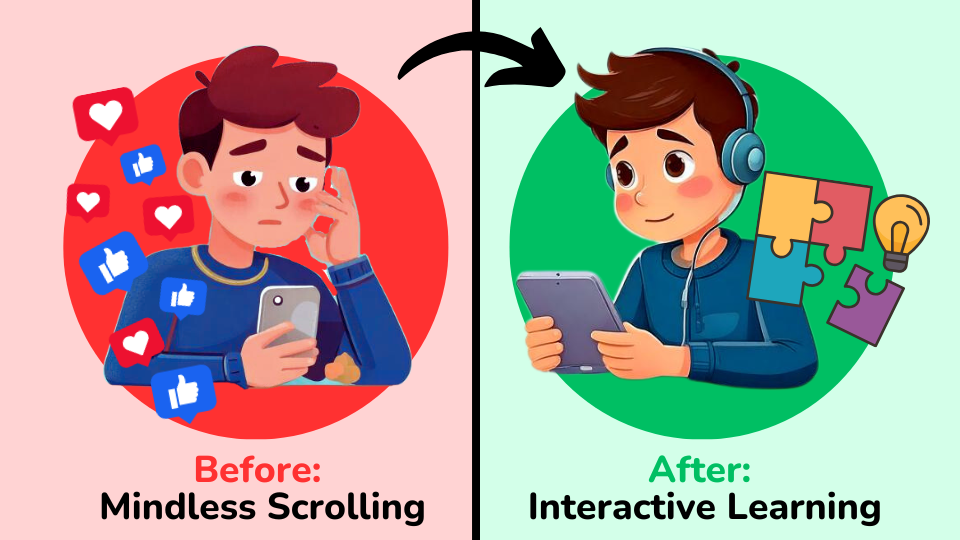








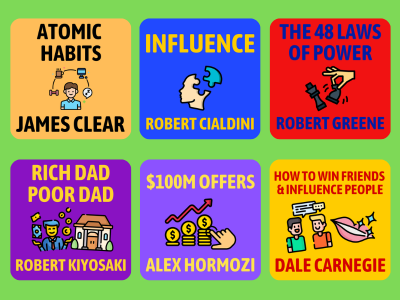
Community Notes